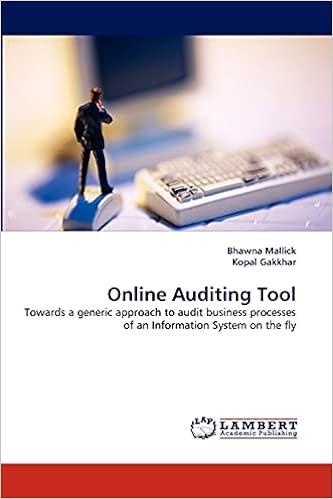Question
Real Cool produces air conditioners in two departments: Assembly and Finishing. Budgeted information follows. Department Budgeted Cost Allocation Base Budgeted Usage Assembly $ 414,000 Machine
Real Cool produces air conditioners in two departments: Assembly and Finishing. Budgeted information follows.
| Department | Budgeted Cost | Allocation Base | Budgeted Usage | |
|---|---|---|---|---|
| Assembly | $ 414,000 | Machine hours | 6,900 | machine hours |
| Finishing | 21,000 | Direct labor hours | 3,500 | direct labor hours |
Additional production information for two models of its air conditioners follows.
| Per unit | Model A | Model T |
|---|---|---|
| Selling price | $ 500 | $ 580 |
| Direct materials | 145 | 135 |
| Direct labor | 195 | 205 |
| Model A | Model T | |||
| Units produced | 400 | 500 | ||
| Assembly machine hours per unit | 2 | MH | 4 | MH |
| Finishing direct labor hours per unit | 3 | DLH | 4 | DLH |
1a. Compute departmental overhead rates and determine overhead cost per unit for each model.
1b. Use machine hours to allocate budgeted Assembly costs and use direct labor hours to allocate budgeted Finishing costs.
2. Compute the total product cost per unit for each model.
3. For each model, compute the gross profit per unit (selling price per unit minus product cost per unit).




Step by Step Solution
There are 3 Steps involved in it
Step: 1

Get Instant Access to Expert-Tailored Solutions
See step-by-step solutions with expert insights and AI powered tools for academic success
Step: 2

Step: 3

Ace Your Homework with AI
Get the answers you need in no time with our AI-driven, step-by-step assistance
Get Started


